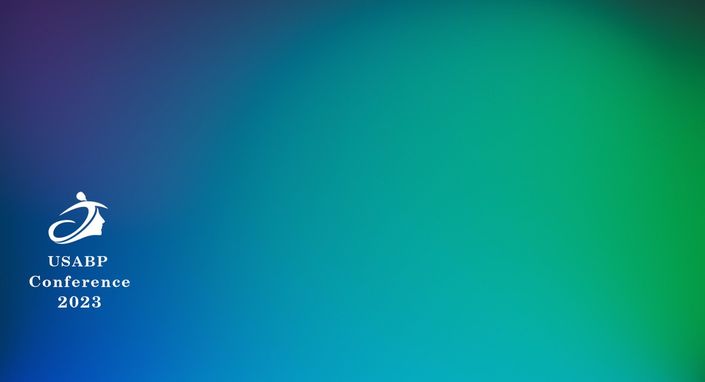
Touch and Psychotherapy Panel
Moderator: Terese Gjernes; Panelists: Aline LaPierre, Dave Berger, Shirley Dvir, Steuart Gold
Moderator
Terese Gjernes, PsyD, SEP, CMTSE
Panelists
Aline LaPierre, PsyD, MFT, SEP
Dave Berger, MFT, PT, LCMHC, SEP, MA
Shirley Dvir, LMFT
Steuart Gold, MFA, MA, MFT
This course will not include CEs. Our upcoming recorded live events will be available here, free for members and non-members who register for them. Members and event registrants can use their discount code to watch this event free. For assistance email usabp@usabp.org..
Abstract
Touch is our first relational language, shaping our earliest experiences and supporting healthy attachment and bonding. Development, regulatory capacity and ability to connect internally and relationally with more ease and fluidity are supported by safe and attuned touch. Though Touch has long been taboo in traditional psychotherapy, our understanding of developmental trauma continues to grow, as does our understanding of how relational touch can support healing. In this panel we bring together licensed psychotherapists who teach and innovatively use safe psychotherapeutic touch. Topics of discussion include:·Nuances of safety and attunement.
Bios
Terese Gjernes, PsyD, SEP, Licensed Psychologist, CMTSE. Associate Professor and core faculty in Somatic Psychology at CIIS. Her work is deeply influenced by early development, movement and touch. She is trained in Kathy Kain’s touch skills for trauma and in cranial-sacral therapy. She trained and worked at the Infant-Parent Program at UCSF and is endorsed as a Reflective Practice Facilitator II and an Infant-Family and Early Childhood Mental Health Specialist for ages 0-5 by the California Center for Infant-Family and Early Childhood Mental Health. Her work also draws from a lifetime of dancing and over 30 years practicing yoga, Authentic Movement and contact improvisation. She has a private practice, treating all ages in Berkeley, California.
Shirley Dvir, LMFT the founder of Relational Somatic Healing and a Licensed Marriage and Family Therapist, and a PhD student at CIIS in somatic psychology, working on her dissertation on touch and psychotherapy. For over 10 years she taught as a Certified Hakomi Teacher at the Hakomi Institute of California, John F. Kennedy University, California Institute for Integral Studies, and Shiluv Center in Tivon, Israel. She supervised associates pursuing MFT licensure and currently mentors licensed practitioners. Her main work today focuses on healing relational wounds with safe embodied touch. Her spiritual practice and meditation support how she holds her work and her teaching
Dave Berger, MFT, PT, LCMHC, SEP, MA. Dave has over 40 years of practice as a somatic psychotherapist, physical therapist and bodyworker. He is senior international faculty with the Somatic Experiencing® Trauma Institute and one of five authorized to teach SE™ master classes by Dr. Peter Levine. Dave’s own Relational Bodywork and Somatic Education Training™(BASE™) for trauma practitioners includes bodywork and somatic systems work in which students learn very detailed relational touch for individuals and working with small systems of couples and groups. He has been fortunate to study with many expert Semanticists, including Marion Rosen, Paul Linden and Peter Levine. His present area of interest and expertise is in helping those traumatized by near death experiences, altered states of consciousness and chronic pain. His undergraduate work is in Somatopsychology (UMD). His graduate degrees are from Stanford (Physical Therapy) and CIIS (Somatic Psychology).
Steuart Gold, MFA, MA, MFT has worked in various aspects of the field of psychology for over two decades. Having come to the field after 25 years as a professional dancer, he integrates humanistic, psychodynamic theories and techniques within body-oriented methodologies. For 30 years Steuart has held numerous teaching positions with universities and institutes throughout North, Central and South America, Europe, Asia, and the Mid-East. His somatic psychotherapy private practice consists of working with individuals, couples, and families. As Clinic Director with CIIS' Center for Somatic Psychotherapy, Steuart provides clinical supervision, designs and implements the training curriculum, and organizes community outreach programs. While practicing as psychotherapist, professor, clinical supervisor and Clinic Director, Steuart encourages an exploration of the body's central role in the development and ongoing experience of our lives. Steuart holds a Masters of Arts degree in Counseling Psychology (concentration in Somatic Psychology) from CIIS, as well as a Masters of Fine Arts degree in Dance from the University of Illinois and a Bachelor of Fine Arts degree in Dance from the Juilliard School. In addition Steuart is a certified massage therapist, a Rosen Method Bodywork practitioner and a Biodynamic Craniosacral Therapist.
